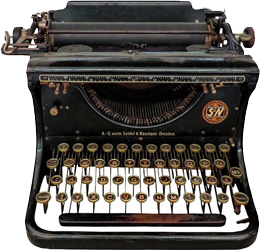
March 30 – This panel, Crafting Twists & Reveals, revealed not only how different authors weave twists and reveals into their writing but also how their writing processes work. A great deal of information was provided and it was interesting to hear and compare my “process” to those of other writers. The discussion focused on whether the authors plot their stories and twists, the need to know the ending before starting to write, the timing and placement of twists, the manipulation of the reader, spoilers, authors that inspire, and the impact of technology. The panelists were Rob Hart (moderator), Harry Hunsicker, A.J. McCarthy, Thomas Perry, and Ashley Dyer (left to right in the photo above). Any mistakes are due to faulty notetaking and/or memory on my part.
Harry
- In a perfect world he would have an outline, but he doesn’t
- Books work better when he has a grip on what the twist is
- Huge fan of cliffhanger chapters
- Tries to get out when there is still something to happen, reader will flip the page
- Note cards do not work for him
- Uses Word to plot out scene one, scene two, etc. – then, never looks at it after the first week
- Not a visual person
- Doesn’t know exactly how it is supposed to end
- Wants to keep his interest going
- Sometimes guilty of having too many characters, then combines or removes character
- Doesn’t like spoilers, although the Day of the Jackal gives away the end of the book with a spoiler, but it doesn’t matter
- Inspired by Dennis Lehane and Lee Child (The Killing Floor)
- To deal with technology, makes sure cell coverage is weak
A.J.
- A pantser, knows where it starts and where it ends, by the 14th or 15th time, it’s done
- Read Sidney Sheldon first, had a cliffhanger at end of each chapter
- Has little notes everywhere but doesn’t come across them until the book is finished
- You can’t write unless you’ve read
- Know what works and doesn’t work
- Beta readers say “I was sure it was that guy, and then you killed him”
- If it slows down too much, it’s time to kill someone or blow something up or start a fire
- Doesn’t like spoilers, will not read the back blurb when she buys a book
- Starts with a clean slate
- Inspired by Jeffrey Deaver and Sidney Sheldon, plus a lot of others
- No twist is too shocking, but couldn’t kill off a main character
- Tries not to get too technical, have to walk a fine line
Thomas
- Usually begins by telling the story to a person like him, builds the story as if telling it to another person
- Knows roughly what it is about
- Previous experience writing for television, something at the end of each “act”
- Learn to know when your scene is over
- Tries to interest the reader by telling your story
- If I can hear a character talking, he’s mine
- Think about what you’re doing from most basic point of view – telling a story
- Wants the reader to discover the story as the writer is discovering the story
- Reproduce in that reader the surprise you felt when you wrote it
- Sometimes guilty of writing something too arty; if you do, kill it, purple passages are the enemy
- I don’t mind spoilers and they don’t seem to bother most people
- You have a bargain with your reader, you’ve agreed on the rules, don’t want twists to occur where you’re reader doesn’t believe it, don’t let them say “oh, that would never happen”
- Most dangerous influence was Martin Cruz Smith (Gorky Park)
- Don’t be too influenced by any particular author
- Has killed a main character to end a series
- An editor/publisher may tell you not to kill your character (or her husband), readers will not forgive you and you might get another idea for a book in the series
- The number of surprises has to be geared to the story
Ashley
- Plots her books now, running 40-50 pages at times, but will change things
- Cliffhangers are good, but can be as simple as a question left in the reader’s mind
- Uses colored stickers to mark action, backstory, scenes
- If you do try to manipulate the reader don’t get caught doing it, readers will suspend disbelief but don’t make them look like fools
- Most powerful tool you have is the Delete button
- Hates to know the ending
- Inspired by earlier Thomas Harris books and Dennis Lehane
- Forensic scientist as a main character, so technical things happen (fingerprint turns up inside a Plexiglas block)
- Be careful you don’t overdo the technology, if something simpler works use it
- Reading is a far more active process than watching a film
Rob
- If he writes a note to himself, he usually doesn’t remember what he meant when he wrote the note
